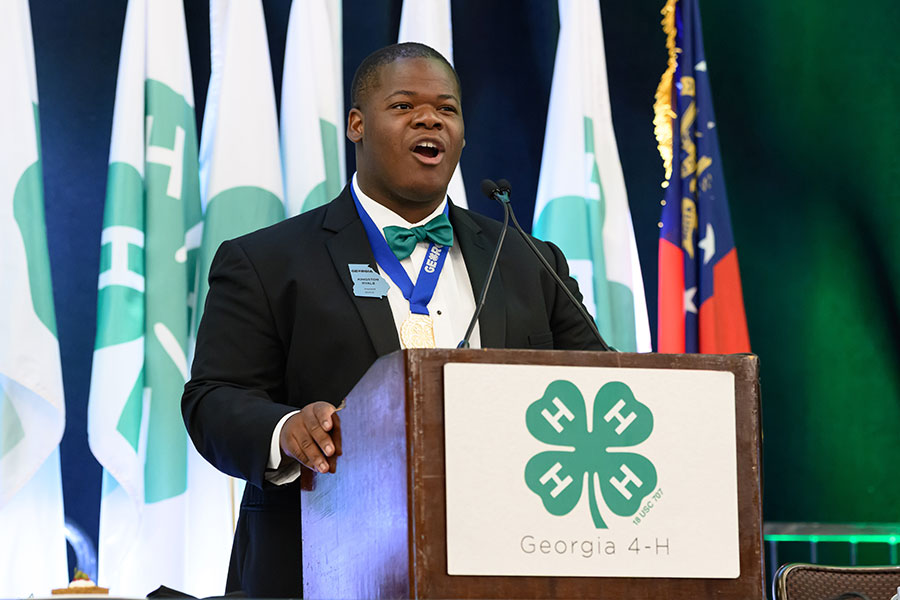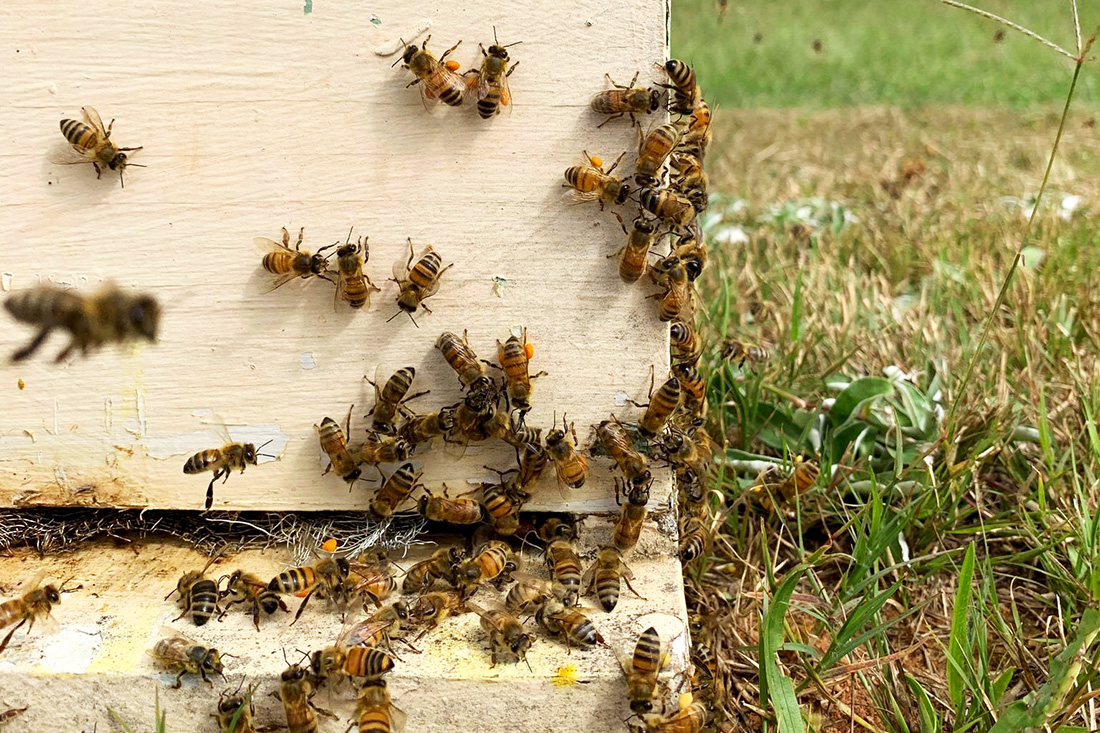After a two-week adventure, 12 Georgia high school students returned from Costa Rica this summer with lifelong memories and a newfound appreciation for home.
"Our main goal was to have the students become greater stewards of the earth and see the diversity," said Pat Clifton, one of two coordinators of the young scholars program at the University of Georgia College of Agricultural and Environmental Sciences. "We wanted them to understand another culture. But the trip resulted in much more."
For six years the CAES has offered the Young Scholars program for high school students. Selected students work beside researchers at the college's experiment stations in Griffin and Athens. This year the program's coordinators added a new feature.
Working With Researchers Here and Abroad
"Our college includes several international programs," Clifton said. "We wanted to offer an international experience to our young scholars."
Jerry Arkin, assistant dean of the Georgia Experiment Station in Griffin, had recently visited Costa Rica. He suggested taking the students there.
"Costa Rica is a perfect place for an agricultural and ecological trip," said Marilyn Johnson, the other Young Scholars coordinator.
"It's probably the youngest land above water," she said. "The soil and mountains are very young, especially when compared to the United States. Mountains like the Appalachians are very old, and our soil is so depleted in comparison to theirs."
Besides its rich ecosystem, Costa Rica offered a rich, safe, learning environment.
"It's a very safe culture," Johnson said. "The water is safe to drink. There are no required immunizations. And to top it off, we have two UGA faculty working there who were willing to teach our students."
The faculty members, Milton and Diana Lieberman, run the San Luis and San Miguel Biological Stations. Scientists completing internships at the facilities taught the young scholars, too.
The trip had only one obstacle: money.
Luckily, Johnson was writing a grant proposal to the NASA Space Grant Consortium when the idea came up to take the students on an international trip.
"The Liebermans have backgrounds in remote sensing, which allowed us to link the trip with the NASA grant," she said.
Missing the Conveniences of Home
The students faced culture shock in Costa Rica, Johnson said, even though it's a developed country. "There was enough difference for them," she said, "to be very grateful for some of the conveniences and sanitation we have in the United States."
Clifton said it was easy to see the students' appreciation growing for the United States. Costa Ricans "don't have the variety of foods we have," she said. "And they have limited access to technology."
While the students missed the material goods of home, they admired the closeness of Costa Rican families.
"The students were impressed," Johnson said, "with how happy the people are despite not having all the material things we've grown accustomed to. You can tell these people value family and fresh air and good food."
The Young Scholars stayed in Costa Rican families' homes for two days. "We were as close to them as you can get," Johnson said. "You see them interact with their children. You see how important their children are to them. And their farms are their pride and joy."
Unspoiled Coasts, Forests and Mountains
The students saw the Costa Rican coast and mountains. "We were on a reserve, and the coast was isolated and absolutely preserved," Clifton said. "We saw coffee fields, and the area is very diverse. It's unbelievable to see what happens to plants when they are left untouched."
The coordinators hope to find funding for an international trip for the young scholars program each summer.
"One of the students, now a college freshman, told me how much she is enjoying her Spanish classes," Clifton said. "She credits that to her experience in Costa Rica."






